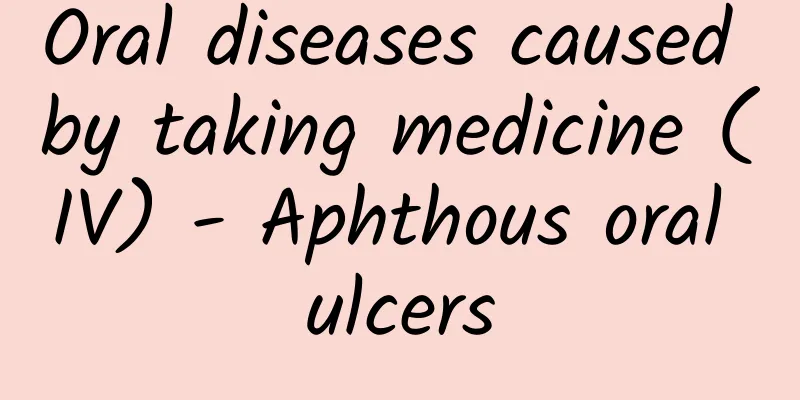2023 National Love Teeth Day Core Message (I) Maintaining oral health and promoting overall health

|
Author: Yu Guangyan, Peking University School of Stomatology The oral cavity is part of the body's organs. Oral diseases not only affect the functions of oral organs, but can also cause or aggravate lesions in other organs of the body, causing a significant impact on overall health. Systemic diseases can also affect the oral cavity, causing various manifestations in the oral cavity. Dental caries and periodontal disease are the two most common oral diseases. Dental caries is the main cause of tooth loss. Tooth loss will inevitably lead to poor chewing function, affect food digestion and absorption, and cause malnutrition. Children with more dental caries often become thin, and in severe cases, their development is affected. If dental caries is not treated in time, it can develop into chronic apical abscess, fistulas in the gums, repeated pus discharge, and then it can become a lesion. The so-called "lesion" refers to a localized tissue infected with pathogenic microorganisms. The toxins in this localized infection focus may spread to nearby tissues or organs, and may also cause diseases of distant organs and tissues. For example, tooth infection can cause arthritis, endocarditis, nephritis, etc. Research reports show that after removing the tooth lesion, a variety of eye diseases can be cured, and the symptoms of skin diseases such as erythema multiforme, herpes, urticaria, eczema, etc. can be alleviated. Periodontitis is another important cause of tooth loss, which is more common in middle-aged and elderly people. However, some periodontitis is more common in young people around 20 years old, and some even start to develop as early as adolescence. It often develops rapidly and the treatment effect is poor. Periodontitis is very harmful to the body. Because a group of teeth or all teeth are loose or even lost, it affects the chewing function and increases the functional burden of the gastrointestinal tract. Some research results show that chronic gastritis, gastroduodenal ulcers and gastric cancer are often caused by Helicobacter pylori. The oral cavity is a reservoir of Helicobacter pylori, and the detection rate of Helicobacter pylori in saliva and dental plaque is very high. There is a large amount of dental plaque during periodontitis, which may be an important reason why patients with periodontitis are often accompanied by gastric ulcers. Periodontitis can also become a lesion, causing lesions in distant organs, such as arthritis, iridocyclitis, nephritis, etc. Long-term pus discharge and bad breath caused by periodontitis will also have a certain impact on the work and social life of some patients. People with a history of chronic periodontitis have a significant impact on the control of diabetes. The reason may be that periodontitis increases susceptibility to infection, impairs the host's response ability, and produces excessive collagenase, all of which have an adverse effect on the control of diabetes. Periodontitis is also closely related to coronary heart disease. Research results show that the risk of coronary heart disease in patients with periodontitis is twice that of healthy people, and the risk of heart disease in patients with periodontitis who have lost alveolar bone tissue is as high as 30%. Periodontitis is also closely related to premature low birth weight babies. Studies have reported that pregnant women with severe periodontitis have a seven times higher risk of giving birth to premature low birth weight babies than healthy people. Systemic diseases often affect the oral cavity, and sometimes they first manifest in the oral cavity, which is known as the silent alarm system of the human body. The manifestations of systemic diseases in the oral cavity are varied, and a variety of signs and symptoms appear clinically. Blood diseases have an important relationship with the oral cavity. Oral manifestations often appear in the early stages, or stubborn oral symptoms may appear during the course of the disease, such as gingival hyperplasia, swelling, bleeding of the gums and oral mucosa, and gingival necrosis. There is a close relationship between diabetes and oral diseases. It is reported that patients with non-insulin-dependent diabetes are three times more likely to suffer from periodontal disease than normal people; patients with diabetes are 15 times more likely to be completely toothless than healthy people; periodontal infections are more common and more severe in patients with diabetes and can occur at a young age. Some syndromes may be accompanied by oral lesions in addition to lesions in other parts of the body, such as the common Sjögren's syndrome, which is mainly manifested by dry oral mucosa, dry eyes and rheumatoid arthritis. Since oral diseases are closely related to overall health, it is important to differentiate oral diseases during diagnosis, whether they are simple oral diseases, or are related to systemic diseases, or are a manifestation of systemic diseases in the oral cavity, because the treatment of the two is very different. If it is just a simple oral disease, local treatment may be sufficient. If it is a manifestation of a systemic disease, it is often necessary to combine systemic treatment, or even mainly systemic treatment. For example, periodontitis combined with diabetes must be combined with the treatment of diabetes for the treatment of periodontitis to be effective. At the same time, attention should be paid to the prevention, early diagnosis and treatment of oral diseases, maintaining oral health, thereby promoting overall health and improving the quality of life. |
Recommend
Which days are safe periods?
Female friends always want to have sex with their...
What causes premature ovarian failure?
When women reach a certain age, their ovarian fun...
There is a piece of meat coming out of the uterus
Many women do not pay much attention to the hygie...
Jeep Disease: A disease that jeeps get? No, it’s humans who get it…
There is a strange disease that causes redness, s...
Is breast swelling a sign of pregnancy?
Breast swelling refers to a situation in which wo...
What is the difference between cherries and cherries? Which one has higher nutritional value? What is the difference between cherries and cherries?
Are cherries the same as cherries? Every time I b...
How long does it take for a painless abortion to be clean?
After a painless abortion, clinically speaking, v...
Breast tenderness before and after ovulation
Breast pain before and after ovulation is a commo...
Is it easier to have sex on the day of ovulation to have a boy or a girl?
If the menstrual cycle is regular, the calculatio...
A small amount of bleeding during non-menstrual periods
Menstruation is a compulsory course for women to ...
Stop now! These 4 lifestyle habits are likely to cause blood clots, and many people have them!
Planning and production Review丨Li Qingchen, dep...
What can be used to replace brown sugar in brown sugar glutinous rice cake? Can white sugar be used instead of brown sugar in brown sugar glutinous rice cake?
For those who like to eat brown sugar glutinous r...
Is breast hyperplasia difficult to treat?
If we were to ask which gynecological disease is ...
Siwu Decoction, which replenishes qi and blood, is a classic in gynecological health care!
Siwu Decoction is a health-preserving formula pra...
Causes of vulvar itching during ovulation
Why do women experience vulvar itching during ovu...









